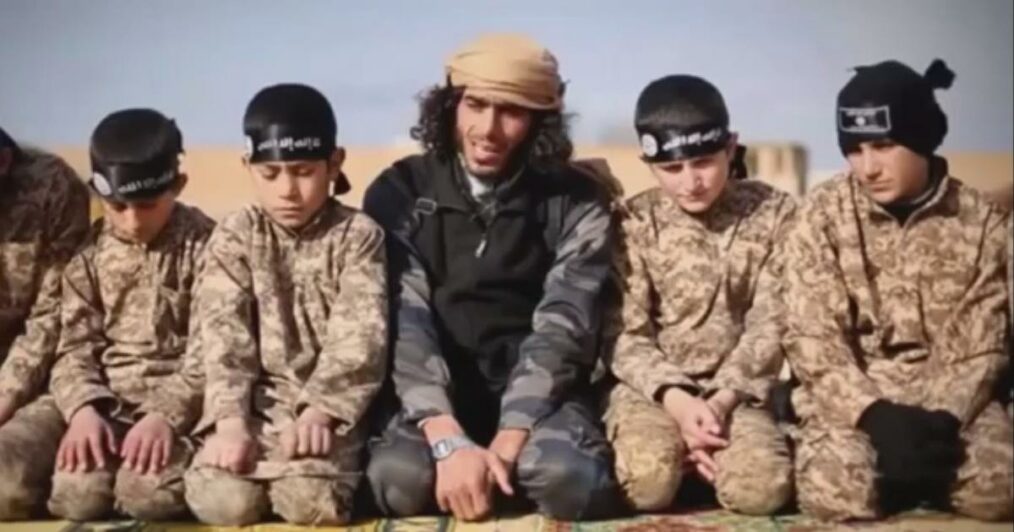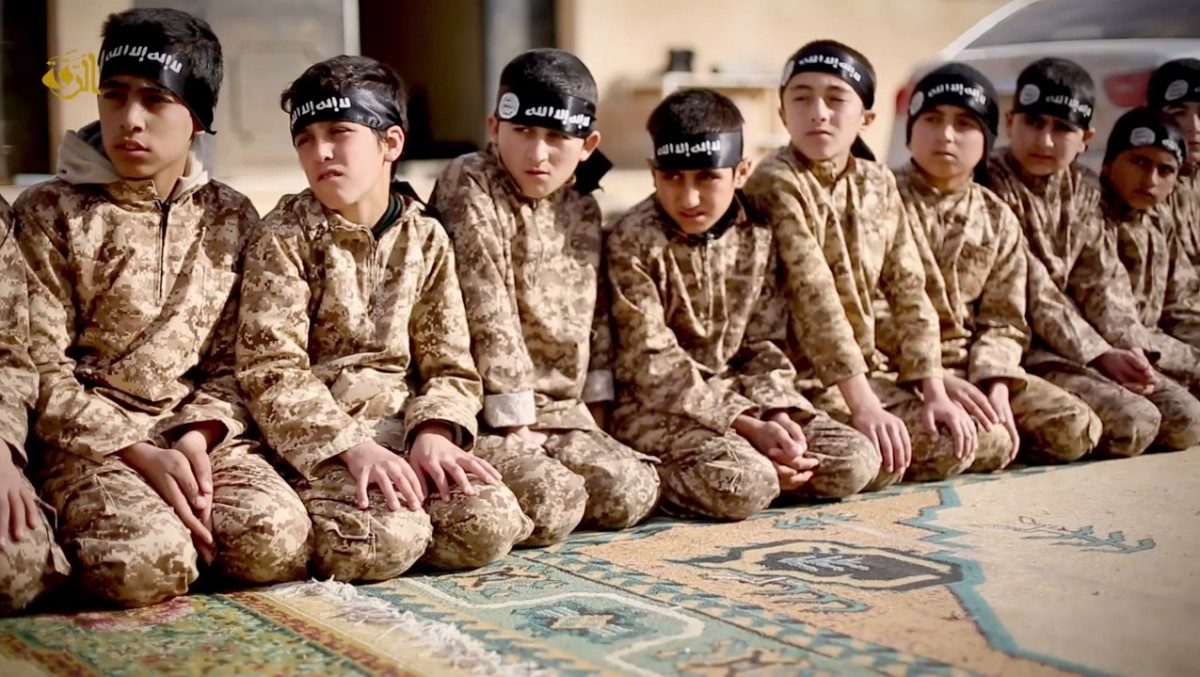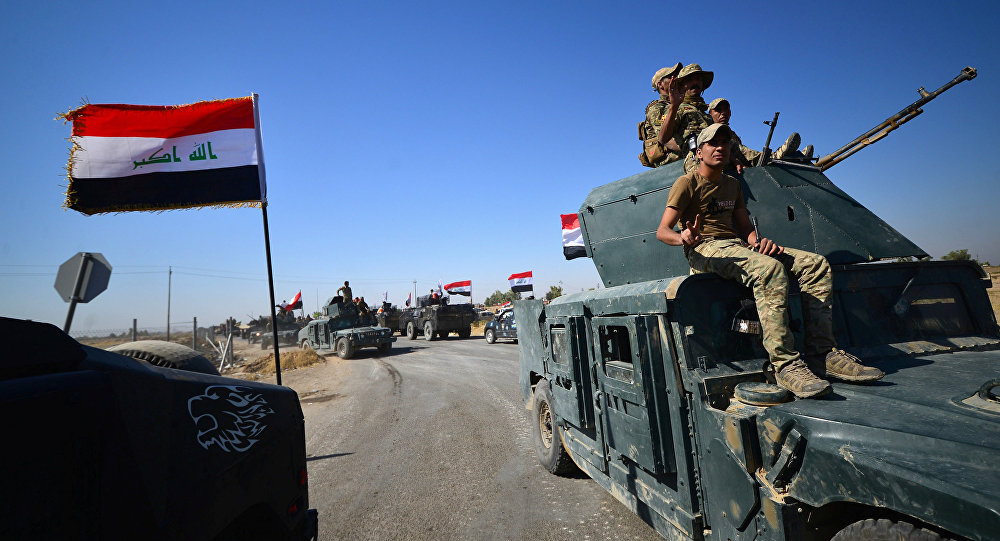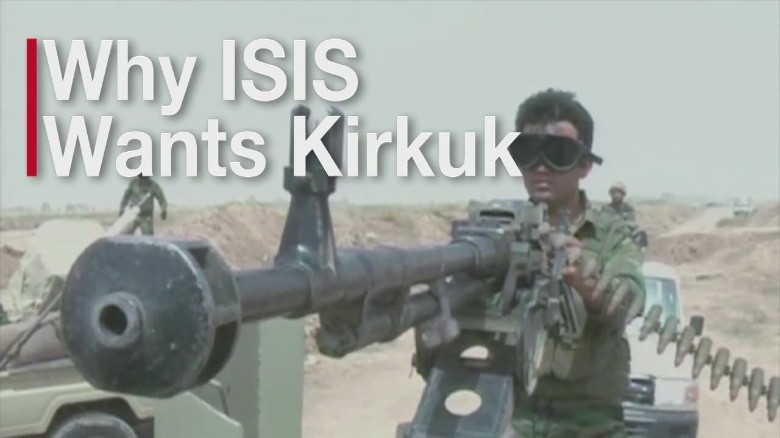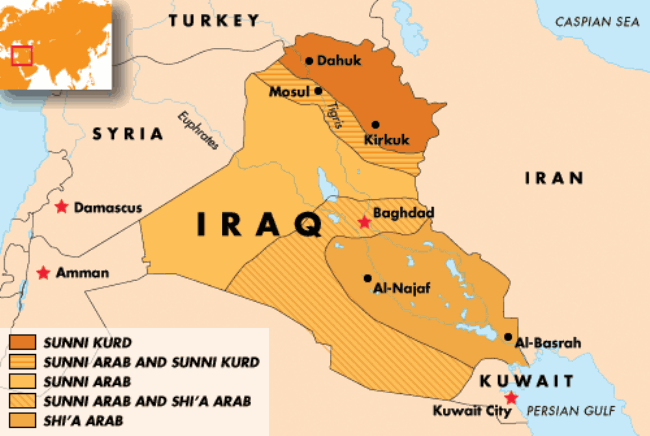Of the many countries around the world affected by terrorism in recent years, few have suffered to the degree that Iraq has. The brutal terrorist group known by various names including ISIS, ISIL, and Daesh has drastically damaged the country’s economy and infrastructure. More than anything else, it has brought a great deal of bloodshed and suffering to the country’s people. Through international cooperation and resolve Iraq has made great strides in disrupting, weakening, and dismantling ISIS by targeting its leadership, financial resources, and sources of propaganda. The battle to prevent the group from re-emerging, however, is far from over. Fortunately, the international community finds itself at a place in time wherein preventing groups like ISIS from flourishing is possible.
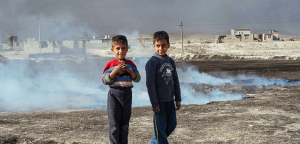
Qayyarah, Iraq © Cosimoattanasio – Redline
The Federal Government of Iraq announced months ago that the terrorist group had been defeated. This may be true. But eradicating and preventing Daesh and groups like it from reemerging presents the greatest obstacle to sustained peace and stability. In order to address this issue, it is crucial that local governing authorities within the country, aided by logistical support from the international community, take steps to de-radicalize and reintegrate the children who’ve been taken as intellectual hostages by terrorist ideology. Without so doing, the terrorist narrative will be passed onto future generations.
According to Peter W. Singer from Brookings, despite, “…global consensus against sending children into battle…there are 300,000 children under 18 (boys and girls) serving as combatants in almost 75 percent of the world’s conflicts; in 80 percent of these, there are child fighters under 15, and in 18 percent, fighters less than 12 years old.” Many children have fought alongside terrorist groups carrying out executions, acting as suicide bombers, and contributing – to an increasingly large degree – to the development and proliferation of extremist propaganda. Terrorist groups see children as invaluable in passing their ideology onto future generations. Children are vulnerable to manipulation and are seen as effective vehicles for carrying out surprise attacks against terror organization’s enemies.
In the face of poverty and despair, children with little access to education often see joining terrorist groups as a source of income, pride, and adventure. They join terrorist groups because they provide them with a feeling of purpose and belonging. Addressing the issues that enable children and their families to see terrorist groups as feasible paths to a decent quality of life is crucial to preventing such groups from being able to successfully recruit children.
A variety of steps should be taken by international organizations, nonprofits, civil society, and local governments to tackle at its ideological roots the challenge of modern-day terror in Iraq. In order to address child terrorism, it is crucial that steps are taken to identify and weaken the structures and mechanisms through which terrorist groups recruit and mobilize youths. Religious leaders have a significant role to play here. It is critical that religious leaders who children see as role models and sources of guidance are encouraged to explicitly denounce false and perverted interpretations of Islam espoused and promulgated by groups like ISIS. In so doing, it’s possible that fewer children will be vulnerable to terrorist recruitment. Further, it increases the possibility of youths themselves speaking out against terrorist ideology. This, in turn, would prevent children from subscribing to the terrorist ideology for that sense of camaraderie and belonging.
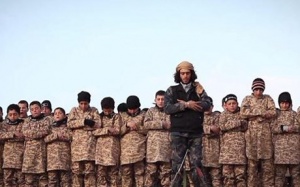
Rudaw – An ISIS propaganda photo shows a prayer session for child soldiers
Steps should also be taken to strengthen the fragile education system in parts of rural Iraq to make it harder for terrorist groups to indoctrinate children with their views. Developing Iraq’s education system through international cooperation and ensuring that educators are teaching peaceful Islamic values is vital to preventing terrorist groups from preaching violence and hate to children. Schooling must be made affordable and accessible as well. Throughout ISIS’s rise and brief reign, impoverished families were forced to send their children to schools that taught extremist interpretations of Islam. Ensuring Iraq’s future generations are provided with quality alternatives to schools of this nature is an important step toward inoculating them against extremism’s allure.
Adopting measures to heighten the accountability of everyone – from religious and terrorist leaders to family members – for terrorist activity perpetrated by recruited youth, is also paramount to discourage the proliferation of terrorist groups’ extremist ideologies. Demonstrating that Iraq’s judicial system is capable of identifying and bringing to justice those who contribute to the radicalization of children will discourage adults from engaging in the practice thereof.
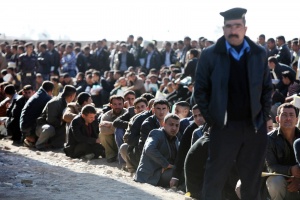
Michael Kamber/The New York Times
Defeating terrorism in Iraq will be a generational challenge. Reducing the pool of desperate, vulnerable children available for terrorist recruitment can only be achieved through improved living standards and access to education. According to Brookings’ Singer, “…underlying problems of hopelessness often lead children (and even their parents) to believe they have no better future than joining terrorism and its likely outcome of an early death.” Fadl Abu Hein, a psychology lecturer from Gaza, notes, “Martyrdom has become an ambition for our children. If they had a proper education in a normal environment, they wouldn’t have sought value in death.”
Defeating terrorism in Iraq and preventing it from reemerging is possible. Addressing the socioeconomic factors that render children vulnerable to extremist recruitment is indispensable to a comprehensive long-term counterterrorism strategy. The international community must help guide Iraq in its efforts to provide its younger generation with a better education, an improved economic environment, and finally, hope. As long as Iraqi youths lack such opportunities they will seek meaning and welfare anywhere it can be found. As long as terror organizations can provide such things, they will be able to recruit from a pool of Iraq’s most vulnerable.
References
Singer, Peter W. “The New Children of Terror.” Brookings, Brookings, 28 July 2016, www.brookings.edu/research/the-new-children-of-terror/.
“Saving the ‘Cubs of the Caliphate.’” Fair Observer, Fair Observer, 5 June 2018, www.fairobserver.com/region/middle_east_north_africa/iraqi-youth-countering-violent-extremism-isis-middle-east-latest-news-65241/.
“Iraq Research: Sense of Injustice Is Key to Violent Extremism.” United States Institute of Peace, 28 Dec. 2016, www.usip.org/publications/2016/01/iraq-research-sense-injustice-key-violent-extremism.
Press Release – June 5, 2018, et al. “Iraq: Extremism & Counter-Extremism.” Counter Extremism Project, 9 May 2018, www.counterextremism.com/countries/iraq.

